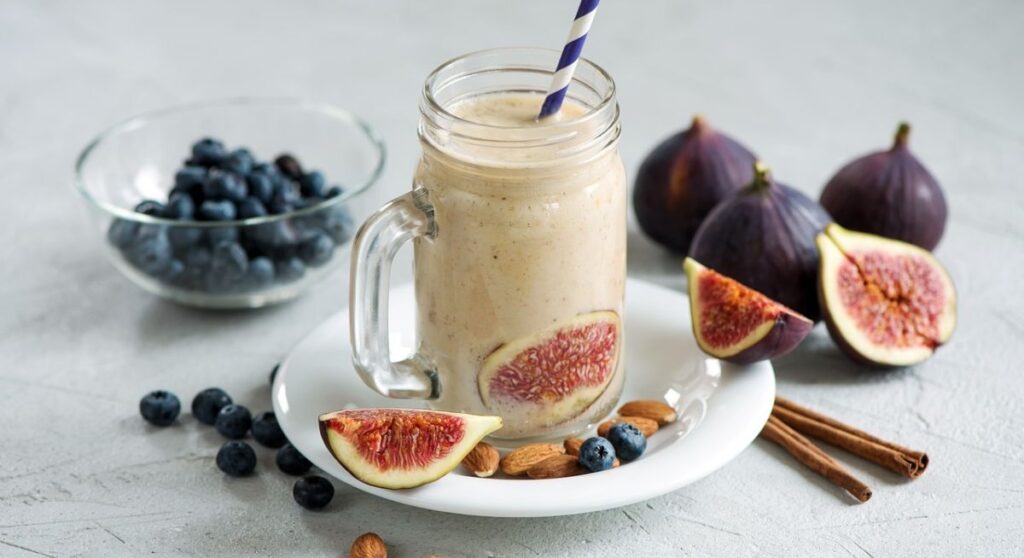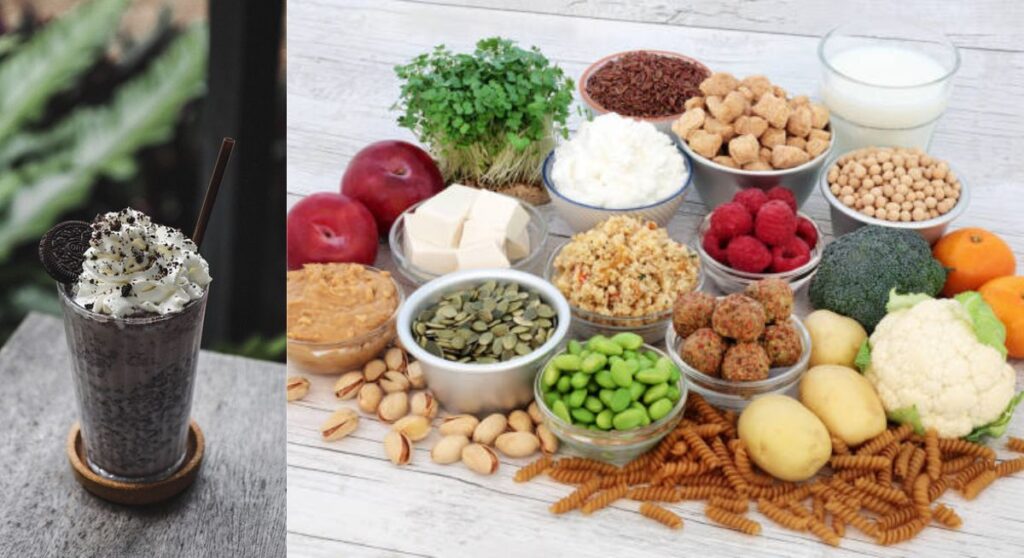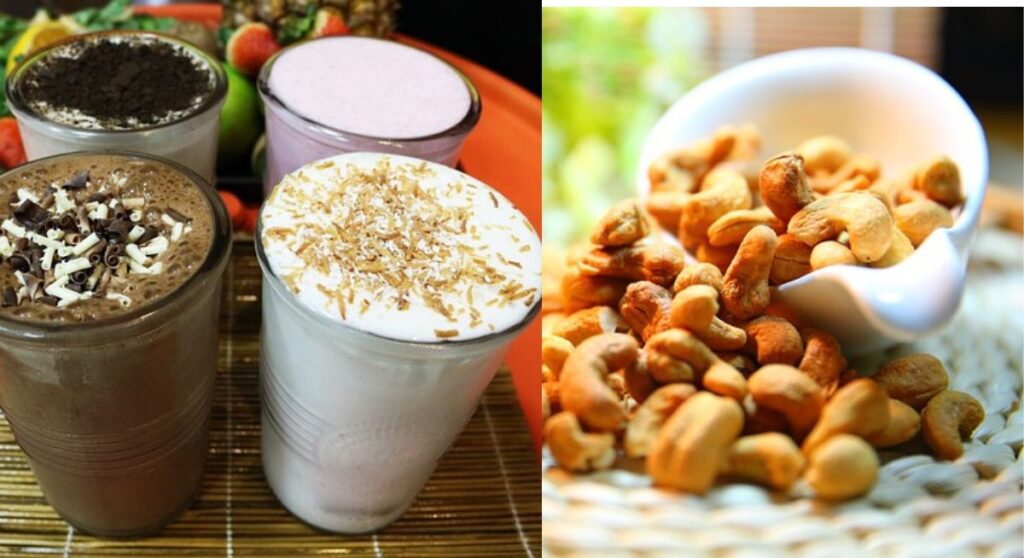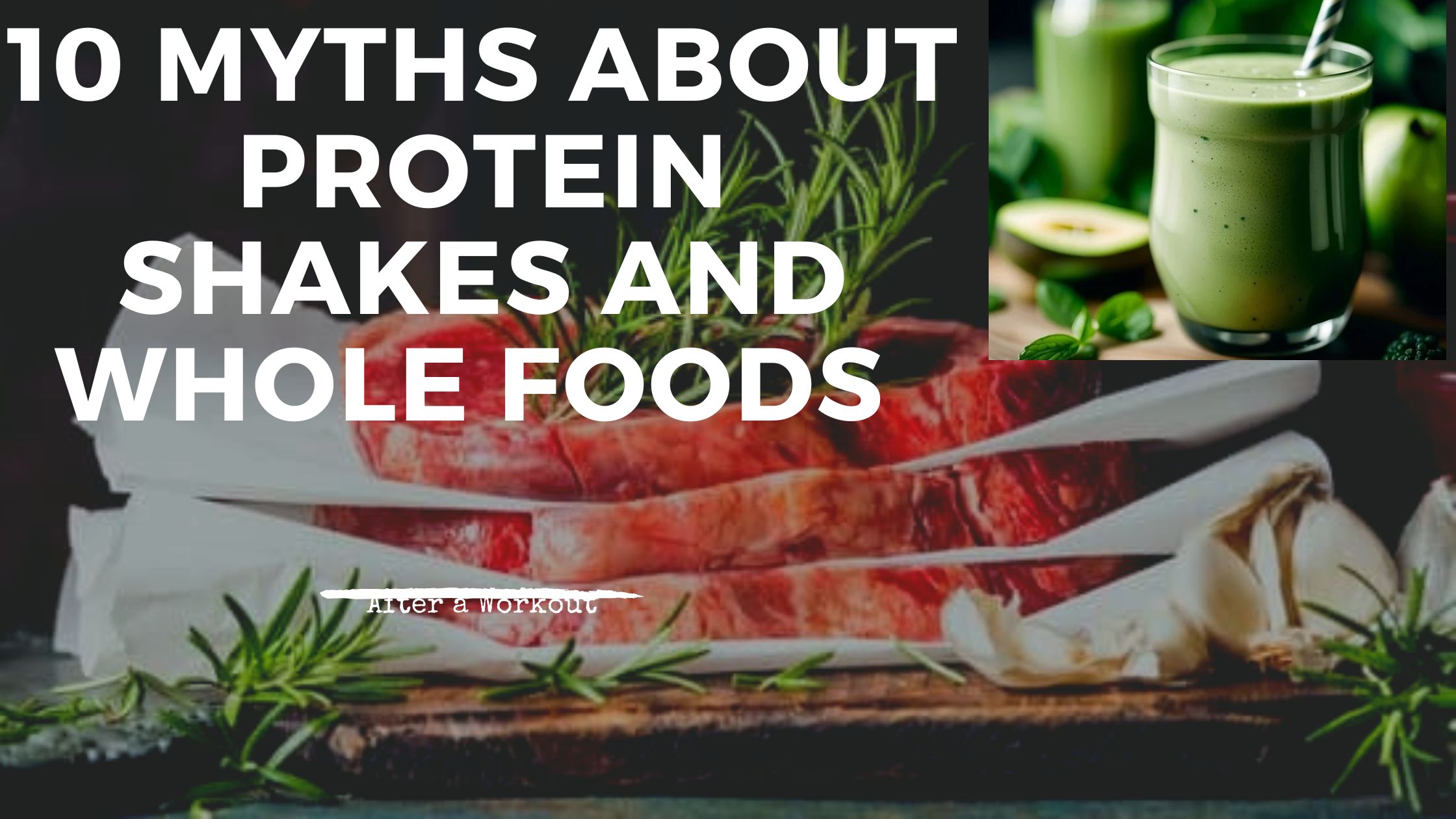Introduction:-
10 Myths About Protein Shakes and Whole Foods After a Workout

When it comes to post-workout nutrition, the debate between protein shakes and whole foods is ongoing. Many fitness enthusiasts rely on protein shakes for a quick boost, while others swear by whole foods for recovery. However, there are many myths surrounding this topic..
Let’s debunk the top 10 myths about protein shakes and whole foods after a workout.
1. Myth: Protein Shakes Are Always Better Than Whole Foods
Fact: While protein shakes are convenient and quickly absorbed by the body, they aren’t necessarily superior to whole foods. Whole foods provide a wider range of nutrients, including vitamins, minerals, and fiber, which shakes might lack. Both options have their place, depending on individual needs and goals.
2. Myth: Whole Foods Take Too Long to Digest for Post-Workout Recovery
Fact: It’s true that protein shakes are absorbed faster than whole foods, but that doesn’t mean whole foods can’t support recovery. Foods like eggs, chicken, or Greek yogurt can still provide high-quality protein and essential nutrients to help rebuild muscles.
3. Myth: You Need a Protein Shake Immediately After Working Out
Fact: The “anabolic window” myth suggests you need protein within 30 minutes post-workout for maximum benefits. While timely protein intake is important, studies show you don’t need to rush to consume it. Eating protein within a couple of hours after exercise is still effective.
4. Myth: Protein Shakes Are Necessary for Muscle Gain
Fact: Protein shakes can help supplement your diet, but they aren’t a necessity for muscle gain. Whole foods, like lean meats, fish, legumes, and dairy, provide sufficient protein to help build muscle when combined with a balanced diet and consistent training.
5. Myth: Whole Foods Can’t Meet Your Protein Needs After Exercise
Fact: Whole foods can easily meet post-workout protein needs. For example, 100 grams of chicken breast contains around 31 grams of protein—comparable to most protein shakes. You can also pair other foods like quinoa, tofu, or cottage cheese to reach your protein goals.
6. Myth: Protein Shakes Are a Magic Bullet for Fat Loss
Fact: While protein can support fat loss by promoting muscle maintenance and increasing satiety, protein shakes alone won’t magically burn fat. A balanced diet and exercise plan are essential for sustainable fat loss. Whole foods can be just as effective, especially when they include nutrient-dense options like fruits, vegetables, and lean protein.
7. Myth: Plant-Based Protein Shakes Aren’t as Effective as Animal-Based Shakes
Fact: Plant-based protein shakes, made from sources like peas, rice, or hemp, can be just as effective as animal-based ones like whey. The key is ensuring you get enough essential amino acids, which can be done by combining different plant-based protein sources.
8. Myth: You Can’t Get Enough Protein from a Plant-Based Diet Without Shakes
Fact: It’s entirely possible to meet your protein needs from whole, plant-based foods. Lentils, chickpeas, quinoa, tofu, tempeh, and nuts are excellent protein sources. A well-planned plant-based diet can provide the necessary protein for recovery and muscle growth.
9. Myth: More Protein Means Better Results
Fact: Consuming excessive amounts of protein, whether from shakes or whole foods, won’t necessarily lead to better muscle gain or recovery. The body can only use a certain amount of protein at a time (around 20-30 grams per meal), and excess protein may be stored as fat or excreted.
10. Myth: Protein Shakes Are Inherently Healthier Than Whole Foods
Fact: Protein shakes can be beneficial, but they’re not always healthier. Some shakes contain added sugars, artificial flavors, and preservatives. Whole foods, on the other hand, are less processed and offer additional nutrients like fiber, antioxidants, and healthy fats that support overall health.
How does the nutritional value of whole foods compare to protein shakes in terms of post-workout recovery?
When comparing whole foods to protein shakes for post-workout recovery, both have their advantages, depending on your goals, time constraints, and dietary preferences. Here’s how their nutritional value differs:

1. Protein Content:
- Protein Shakes: Typically provide 20-30 grams of high-quality, fast-digesting protein per serving (whey, casein, or plant-based options). Whey protein, for instance, is absorbed quickly, making it ideal for immediate muscle repair after a workout.
- Whole Foods: Foods like chicken, fish, eggs, tofu, and beans also provide protein but at a slower digestion rate. They offer sustained muscle recovery and can also be paired with other nutrients for a well-rounded meal.
2. Carbohydrates:
- Protein Shakes: Often low in carbohydrates unless specifically formulated as a recovery shake. Some shakes may contain added sugars for faster glycogen replenishment.
- Whole Foods: Foods like sweet potatoes, rice, quinoa, and fruits provide complex carbs and fiber, replenishing muscle glycogen stores more steadily over time. This can be ideal for endurance athletes or those recovering from longer workouts.
3. Micronutrients:
- Protein Shakes: Usually contain added vitamins and minerals, but the variety and bioavailability of nutrients may be lower compared to whole foods.
- Whole Foods: Whole foods are rich in essential vitamins, minerals, antioxidants, and other nutrients that help in recovery and overall health. For instance, leafy greens, nuts, and seeds offer a wide array of micronutrients beneficial for recovery and inflammation reduction.
4. Digestibility and Satiety:
- Protein Shakes: Fast-digesting and convenient, especially right after a workout. However, they might not keep you full for long.
- Whole Foods: Take longer to digest, offering more satiety. They may not provide the immediate post-workout protein boost that shakes do, but they support longer-term recovery and overall nutrition.
5. Antioxidants and Anti-Inflammatory Compounds:
- Protein Shakes: Most are not specifically rich in antioxidants, though some might have added ingredients to support inflammation control.
- Whole Foods: Many whole foods like berries, leafy greens, and fatty fish are rich in antioxidants and anti-inflammatory compounds, which help reduce muscle soreness and improve recovery.
What are the potential downsides of relying too heavily on protein shakes instead of whole foods?
Relying too heavily on protein shakes instead of whole foods can lead to several potential downsides:

1. Nutrient Deficiencies:
- Limited Micronutrients: Protein shakes may lack the variety of vitamins and minerals found in whole foods. Over time, this can result in deficiencies that negatively impact overall health.
- Missing Phytochemicals: Whole foods contain beneficial compounds like antioxidants and phytochemicals that help with inflammation and disease prevention, which are often absent in protein shakes.
2. Digestive Issues:
- Gastrointestinal Discomfort: Some individuals may experience bloating, gas, or diarrhea from certain protein powders, especially those with lactose or added sugars.
- Lack of Fiber: Many protein shakes are low in fiber, which can affect gut health and lead to digestive problems like constipation.
3. Overconsumption of Protein:
- Excessive Intake: It’s easy to overconsume protein through shakes, which may lead to unnecessary calorie intake and stress on the kidneys over time, especially for those with preexisting kidney issues.
4. Imbalanced Diet:
- Neglecting Food Variety: Relying on shakes can lead to a monotonous diet lacking in the diversity of nutrients provided by whole foods, which can affect overall health and wellbeing.
- Poor Meal Satisfaction: Shakes may not be as satisfying as whole food meals, leading to feelings of hunger or cravings for other foods.
5. Impact on Satiety:
- Less Satiety: Protein shakes may not keep you full for long compared to whole foods, which can lead to snacking or overeating later in the day.
6. Potential Additives:
- Unwanted Ingredients: Some protein powders contain artificial flavors, sweeteners, or preservatives that may not be beneficial for health. Regular consumption could lead to long-term exposure to these additives.
7. Psychological Effects:
- Food Relationships: Relying on shakes can contribute to an unhealthy relationship with food, where individuals may view them as a substitute for meals instead of a supplement, potentially leading to disordered eating patterns.
8. Cost:
- Expense: Quality protein powders can be expensive, and relying on them can add up financially compared to whole foods, which may provide more nutrition for a similar or lower cost.
While protein shakes can be convenient for meeting protein needs, they should ideally complement a balanced diet rich in whole foods. Incorporating a variety of foods ensures that you get the full spectrum of nutrients necessary for optimal health and recovery.
Conclusion
Both protein shakes and whole foods have their advantages, and the best choice depends on your lifestyle, fitness goals, and dietary preferences. Debunking these myths can help you make more informed decisions about your post-workout nutrition. Whether you choose a shake or a hearty meal, the key is to consume enough high-quality protein to support recovery and muscle growth.
References
Here are references that support the information in the article:
- International Society of Sports Nutrition (ISSN) Position Stand on protein and exercise suggests that while post-exercise protein consumption is important for muscle recovery, the timing is flexible and not confined to a 30-minute window. Whole foods can be just as effective for muscle recovery if consumed within a few hours post-exercise.
- Source: International Society of Sports Nutrition Position Stand
- Academy of Nutrition and Dietetics confirms that plant-based protein sources can meet daily protein needs, emphasizing the importance of variety in plant foods to ensure a complete amino acid profile.
- Source: Academy of Nutrition and Dietetics
- Journal of Applied Physiology notes that the body can effectively use about 20-30 grams of protein per meal for muscle protein synthesis, and excessive protein intake is unlikely to lead to additional muscle gain.
- Source: Journal of Applied Physiology
- Mayo Clinic highlights that while protein shakes can be convenient, whole foods often provide a more balanced array of nutrients, including fiber, vitamins, and minerals, that support overall health.
- Source: Mayo Clinic
- National Institutes of Health (NIH) states that too much protein, whether from shakes or whole foods, is not beneficial and could contribute to weight gain or kidney strain if consumed in excess.
- Source: National Institutes of Health

